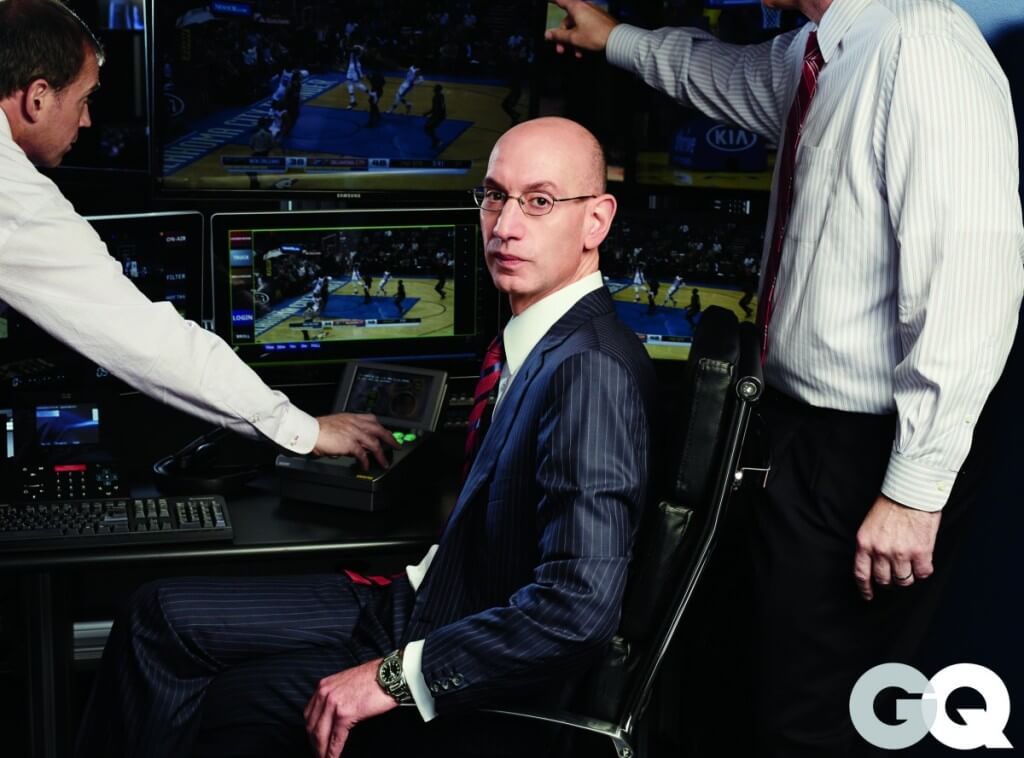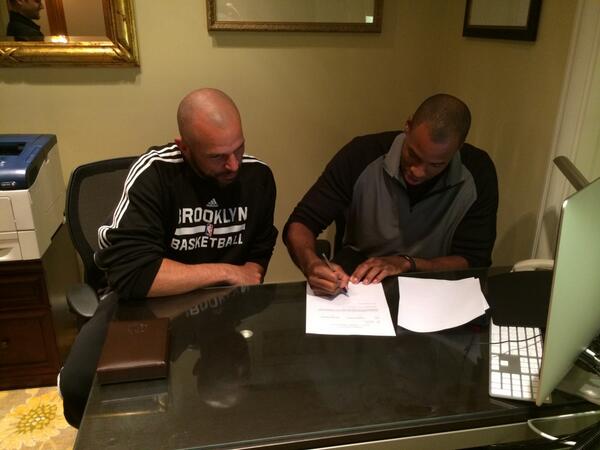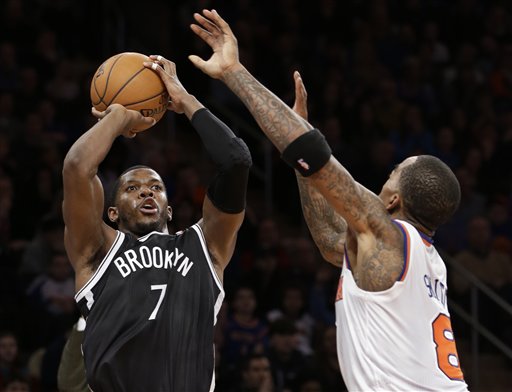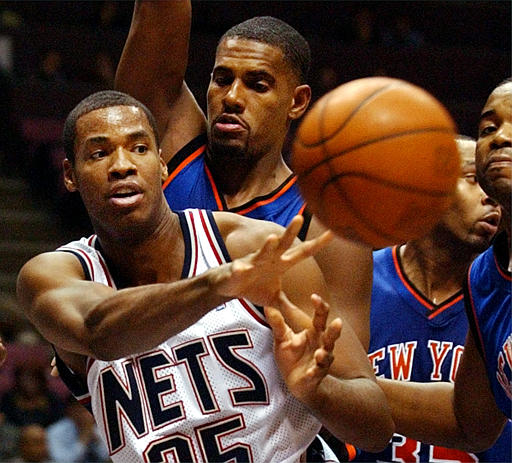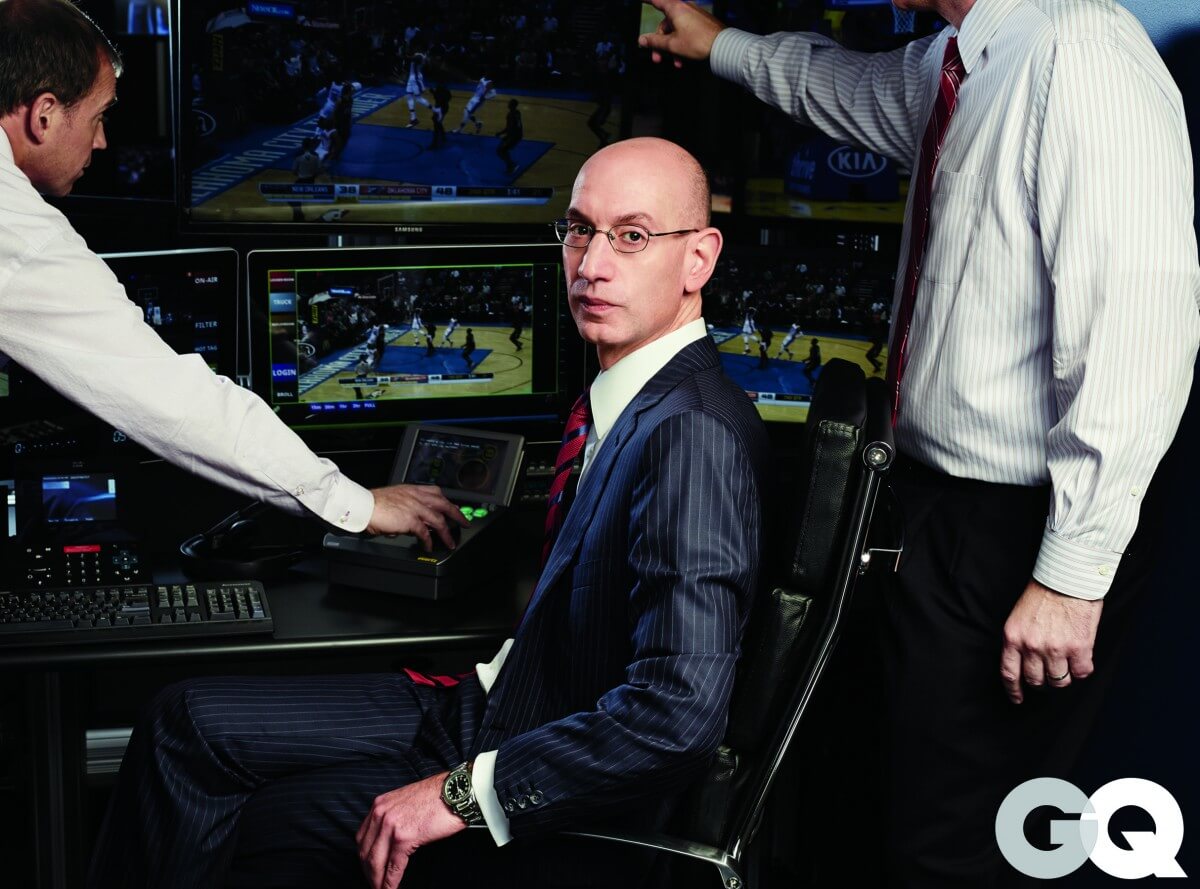
GQ Magazine has named NBA commissioner Adam Silver their “Rookie of the Year,” after Silver took the helm in place of the retiring David Stern. In Silver’s interview with Chuck Klosterman, he tells Klosterman that if he were to change anything about the current NBA, it would be to enforce a stricter salary cap, using the Brooklyn Nets as an example of a team with an “unhealthy” advantage:
“I still think it’s unhealthy for the league when a team like Brooklyn goes out and pays an exorbitant luxury tax in order to give themselves a better chance to win. From a league-office standpoint, the ideal league would be for all thirty teams to compete based on the skill of their management and players, as opposed to one team paying more to get better talent.”
The Nets spent around $190 million in player salary and luxury tax costs last year, not including the cost of coaches and the $4 million they’re still chucking at Travis Outlaw to keep him away. All that spending ended in a 44-38 record and a second-round exit, so the monetary advantage Silver’s talking didn’t trump having the right players (Miami) or the right coach and system (San Antonio).
But even that’s besides the point: if the Nets went 82-0 and tore through the NBA last season, they still would’ve done it under the league structure that was agreed to and implemented by the NBA and the Player’s Association during the last lockout. The only “unhealthy advantage” was that ownership chose to take the risk and lose the money in the hopes of bringing a championship to Brooklyn.
Furthermore, the structure that took boatloads of money from the players in basketball-related income and instilled stricter penalties for spending. The punitive luxury tax measures were supposed to curb spending, but they didn’t outlaw it, and the Nets made the moves they thought they needed to for them to contend. (I’m also betting the small-market teams that are unhappy with Brooklyn’s spending had no issues cashing the ~$3 million luxury tax check they got from the Nets.)
More than anything else, name-dropping Brooklyn seems like an early setup for the inevitable labor negotiations between the NBA and the Player’s Association in 2016. As he says the Nets as an example of how the league needs to do more for “competitive balance,” it’s a veiled reference to limiting NBA roster salaries as a whole, even as the league gets set to enter a nine-year television deal worth $24.9 billion.
Silver also doubled down on his desire to increase the NBA age limit from 19 to 20, and added that in terms of drug testing, they’re not looking to punish marijuana users. Marijuana is now legal in Colorado. “Among our many priorities going forward, marijuana is not at the top of our list,” Silver said. “We’re much more concerned about HGH testing and designer performance-enhancing drugs. This is a policy matter, and it’s our strong preference that our players do not consume marijuana. We believe it will affect their performance on the court. That said, marijuana testing is something that’s collectively bargained with the players’ association, and we adjust to the times.”

